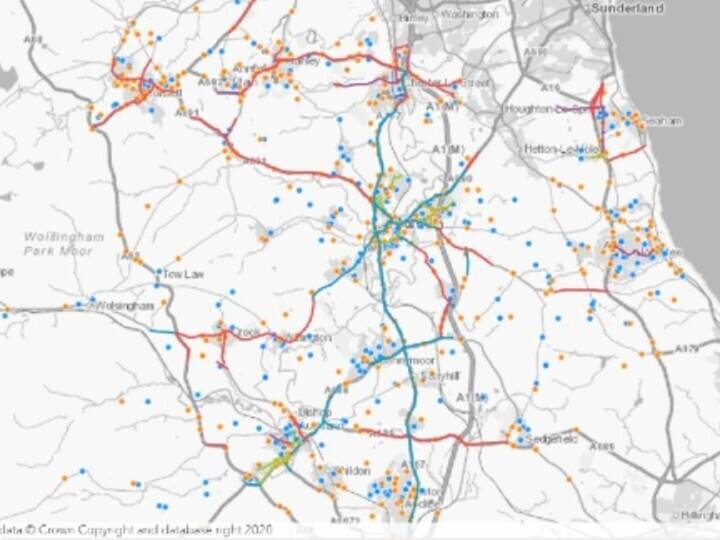Dudley Metropolitan Borough Council migrated its Customer Relationship Management (CRM) system to an MS Dynamics platform. The teams realised a fully integrated property gazetteer would maximise the benefits of this work, providing greater reliability and interoperability for handling myriad customer interactions.
THE CHALLENGE
Dudley Metropolitan Borough Council migrated its Customer Relationship Management (CRM) system to an MS Dynamics platform. The teams realised a fully integrated property gazetteer would maximise the benefits of this work, providing greater reliability and interoperability for handling myriad customer interactions.
The legacy CRM was using a static copy of the Local Land and Property Gazetteer (LLPG). This provided limited validation of addresses. New and out-of-Borough properties were often missing, and needed manually adding on an ad-hoc basis. With no UPRN being applied during that process, this resulted in poor-quality address data, potential for duplication and limited scope for customer insight, plus frustration on the part of users.
Any new Digital Platform would have to use a comprehensive reference gazetteer that could service requests against addresses inside and outside the Borough’s boundaries. The gazetteer needed to be easily kept up-to-date with the addition of all new properties and other changes, and guarantee full validation of addresses and capture of the UPRN automatically at the time of registration.
THE SOLUTION
Dudley’s Digital and ICT Services team designed and built a bespoke web service in-house to provide the necessary address validation and capture functionality. This new platform uses the most simple and well-known interface: it takes postcodes at an online prompt and returns a list of related addresses. Users can then select the relevant one. Behind the scenes, the service searches the on-premise LLPG database for the given postcode. If addresses are identified, these are then quickly displayed. If no matching postcodes are found within the LLPG, the service then searches the OS Places API for a result as well.
Before searching either data source, the web service validates the user’s input, checking the combination of letters and numerals to ensure it constitutes a real postcode. Besides helping to improve the general user experience, this validation helps to guard against SQL injection attacks. It also reduces the risk of wasting remaining OS Places API credits on searches that would obviously fail. In the rare case of an address not being found, there’s still a provision for entering details manually in the registration form. The team monitors such entries, which are then matched by trained staff with direct access to AddressBase and Dudley’s Local Address Custodian, thus ensuring data integrity is maintained.
THE RESULTS
Dudley’s new Digital Platform ensures that validated and complete addresses for properties located within and outside of the Borough are captured in a structured manner, at source, without the need for manual intervention. This guarantees inclusion of the all-important UPRN on customer contact records, providing the opportunity to build a history of individual contacts and gaining insight into citizen needs.
In addition, the level of integration at source means the system can more easily run spatial analysis, identifying areas where services may require further detailed investigation, trends or where take-up is poor.
As an example: the team produced a ‘heat map’ showing the number of registered Digital Platform customers per Lower Super Output Area, and was able to include the ONS Index of Multiple Deprivation ranking. This let them easily visualise which services were requested by people living outside the borough.
Mandatory inclusion of the UPRN has also provided the link needed to support integrations with other key back-office systems. The automated identification of refuse and recycling rounds, for example, which are held on a different system, now saves time and money over manual searches. And, as well as being royalty-free, updates applied to the LLPG by Dudley’s Address Custodian are instantly available – vital, when many transactions relate to provision of services for new-build properties. Only when the LLPG fails to yield an address does the web service resort to the less current and royalty-payable OS Places API.
• Contacts via the Digital Platform over a fourteen month period (01/02/18 to 31/03/2019) stood at 52,040.
• Of these, 30,345 were successfully registered via a direct LLPG match and 21,695 courtesy of the OS Places API.
Thanks to the time-savings made on address cleaning and matching activities, Dudley’s Address Custodian now has the freedom to focus on providing other essential support services.



